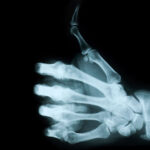With numbers predicted to reach 850,000 by 2058, an advice service has launched to help GPs with tailored treatment strategies.
The number of Australians with dementia is predicted to double from today’s estimate of 401,300 to almost 850,000 over the next 35 years, according to a new report from the Australian Institute of Health and Welfare.
Published today, the report reveals that dementia is now the leading cause of disease burden in people aged 65 and over, the leading cause of death in women and the second leading cause of death in all Australians.
“Until there is a cure or significant advancements in treatment, the best way to reduce the prevalence of dementia in the future is to minimise exposure to risk factors that increase the likelihood of developing dementia in later life,” the AIHW reports.
“International studies have found that the rate of dementia is declining in countries where the prevention and management of high blood pressure and cardiovascular disease has improved in recent years.
“As Australia has improved cardiovascular disease treatment and management, and reduced the prevalence of other major risk factors for dementia (such as tobacco smoking), the rate of new cases of dementia may stabilise or fall in the future.”
The AIHW report acknowledged significant data gaps in the Australian dementia evidence base, which may affect the accuracy of the estimates of future prevalance.
“There is no single authoritative data source that can provide an accurate estimate of the number of Australians living with dementia,” the authors wrote.
“As there are current issues with monitoring the incidence of dementia in Australia, it is unclear whether incidence rates of dementia in Australia have increased, stabilised or decreased over time.
“Work is under way to improve the accuracy of dementia estimates and new approaches will likely supersede the estimates shown in this report in coming years.”
The Northern Territory had the highest rates of deaths from dementia per 100,000 population (55), burden of disease (8.9 DALY per 1000 population), and hospitalisations due to dementia (58 per 10,000 population). These numbers may be a reflection of the significantly higher rates of dementia found in Indigenous populations compared with non-Indigenous. The report found:
- Across the Northern Territory, the age-adjusted prevalence of dementia for Indigenous people aged 45 and over is 6.5%, compared with 2.6% among the non-Indigenous population;
- The prevalence of dementia among Indigenous people aged 60 and over who live in urban and regional areas is about three times as high as the rate for all Australians aged 60 and over (21% and 6.8%, respectively);
- A dementia prevalence rate of 14.2% has been estimated among Torres Strait Islanders aged between 45 and 93 years.
Dementia deaths among Indigenous Australians rose by 70% between 2015 (296 deaths) and 2020 (503 deaths).
“During 2018-20, 318 Indigenous people died due to dementia (202 women and 116 men), and dementia was the fifth leading cause of death among Indigenous people aged 65 and over (11% of all deaths). The number of deaths due to dementia is expected to continue rising due to the ageing population,” the authors reported.
The role of medications
The number of scripts dispensed for dementia-specific medications rose by 43% between 2012-13 and 2019-20.
Even so, just 16.1% of those living with dementia are being prescribed one of the four available dementia-specific medications – perhaps a reflection of the relative ineffectiveness and tight criteria for the medications. Of those 64,600 people receiving prescriptions, most are receiving donepezil (409,500 of 623,300 scripts).
One in five patients receiving dementia-specific medications was also prescribed an antipsychotic at least once a year, with 39% of those receiving risperidone (the only antipsychotic that is currently listed on the PBS for behavioural and psychological symptoms of dementia), followed by quetiapine (29%) and olanzapine (24%).
“It is not recommended that medications are used to manage these symptoms, but antipsychotic medications may be prescribed as a last resort,” the report says.
“However, inappropriate prescribing of antipsychotic medications is a major problem among people living in residential aged care and was a key issue raised in the Royal Commission into Aged Care Quality and Safety.”
Professor Steve Macfarlane, Dementia Support Australia’s head of clinical services, said it was now generally accepted that psychotropic medications’ role in the management of behaviours and psychological complications of dementia was “limited”.
“Nonpharmacological strategies should be an important part in the management of dementia complicated by behaviours and psychological symptoms and in fact be the mainstay of treatment in most patients,” Prof Macfarlane said.
“We want to do all we can to support GPs to consider alternatives to these medications.”
Behaviours and psychological symptoms in patients with dementia may include psychosis, agitation and aggression, depression, anxiety, apathy, impulsivity, pacing, vocalisations, appetite and eating changes, sleep disturbances, distress during personal care and wayfinding difficulties. Up to 95% of people with dementia will experience forms of these symptoms.
According to evidence from the Royal Commission in Aged Care Quality and Safety, many of those patients will be wrongly prescribed medications or chemically and physically restrained. Some of the adverse outcomes associated with psychotropic medications in dementia include increased risks of death, falls, weight gain, hypertension and diabetes, a restriction on the patient’s ability to swallow and an increase in the risks of aspiration, pneumonia, and other respiratory conditions.
Advice for GPs
In better news for GPs treating patients with dementia complicated by behavioural and psychological symptoms can now tap into a new advisory service via tailored email responses or one-on-one phone calls.
The GP Advice Service is a partnership between Dementia Support Australia (led by HammondCare) and the Department of Health, and is designed for psychogeriatricians and geriatricians, as well as GPs.
Advice on treatment strategies will be tailored to the patient based on information provided by the GP, including an overview of the patient’s presentation and history.
The GP Advice Service is designed to be easy for time-poor GPs to access, which they can do through the email service at gpadvice@dementia.com.au. GPs can also provide a telephone number if they prefer a call back for a one-on-one discussion.
If needed, GPs can be offered further support through a range of other Dementia Support Australia programs including the Dementia Behaviour Management Advisory Service and the Severe Behaviour Response Team.
Email the GP Advice Service at gpadvice@dementia.com.au. For more information, visit https://www.dementia.com.au/who-we-help/health-care-professionals/services/gpas.





